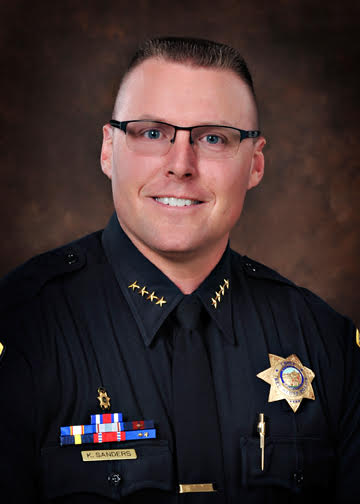
While in my office, at the gym, or just about anywhere else in the community, I often engage in conversations about crime and the apparent lack of accountability in our criminal justice system these days. People often share their belief that many, if not most, criminals simply aren’t being held accountable for their crimes.
People recognize that thieves can go to any local store every day of the week and steal up to $950 at a time with very little repercussion, typically a citation and release, only to come back the very next day and do it again. Or, if one is caught having stolen a vehicle, while they may be arrested and booked in the local jail, they’ll be out within hours to do the very same thing again. Unfortunately, these frustrations I hear from community members are rather accurate depictions of the current state of our “justice” system. And I most certainly share in those frustrations.
How did we get to this place where crime is rampant and criminals aren’t held to account in a way most of us feel is adequate, appropriate, or, most importantly, effective? I would need much more space than allocated for this article to provide an in-depth response to that question. However, the impetus of this current crime wave comes from two key factors.
In 2011 the State of California accelerated mass de-incarceration efforts in our prison system, ultimately reducing the population from a peak of 173,000 inmates to a current census of about 95,000. Subsequently, a series of laws were also enacted that dramatically changed the criminal justice system in California and altered the ability of authorities (law enforcement, district attorneys, courts) to achieve consequences commensurate with the offenses being committed, particularly with repeat offenders.
According to Gregg Allison, justice is “fairly giving people what they are due, especially with respect to the administration of a law.” The justice system’s failure to hold people accountable for their offenses has created a perpetual cycle of crime that most of our community members see and feel. This is also one factor that has led to the spike in homelessness in our state. Our current condition of crime, and the associated fear of crime, should come as no surprise, though, if we consider God’s word.
Ecclesiastes 8:11 tells us, “When the sentence for a crime is not quickly carried out, people’s hearts are filled with schemes to do wrong.” When criminals aren’t held properly responsible, crime breeds because “people’s hearts are filled with schemes to do wrong.” The lack of punishment effectively encourages people to break our laws.
This reminds me of a theory in criminology known as Rational Choice Theory. The idea is that, in many cases, criminals weigh the “costs versus benefits” of their actions before committing a crime. They evaluate, albeit briefly in some cases, the risks versus rewards. In other words, they are scheming to do wrong; and in their scheming, far too often, the conclusion is that the rewards outweigh the risk.
The Bible clearly and repeatedly expresses that God is a God of Justice. In fact, Psalms 11:7 tells us that He loves justice; and Psalms 89:14 notes that “Righteousness and justice are the foundation” of His throne. Conversely, justifying wickedness is an abomination to God (Proverbs 17:15). Yet, as a state, we have largely accepted criminal activity by creating laws that fail to hold criminals accountable.
This watering down of our criminal justice system over the past decade has not resulted in true justice but rather perpetuated wrongdoing at growing levels. We need to return to a model that holds criminals responsible so our victims can have an appropriate measure of justice. For when the government punishes wrongdoers, it is doing exactly what God expects it to do.
Lastly, we know that authorities are in place to address those whose conduct is criminal, as noted in Romans 13:4, “for he is God’s servant for your good. But if you do wrong, be afraid, for he does not bear the sword in vain. For he is the servant of God, an avenger who carries out God’s wrath on the wrongdoer.” Governments have a responsibility to restrain evil and to provide appropriate punishment by establishing laws that hold criminals accountable for their actions.
Most importantly, “He has told you, O man, what is good; and what does the Lord require of you but to do justice, and to love kindness, and to walk humbly with your God?” (Micah 6:8).
***
A lifelong resident of Red Bluff, Kyle Sanders is the police chief of the Red Bluff Police.
Department, a role he attained in 2015. He possesses a Bachelor’s Degree in Organizational Leadership and a Master’s Degree in Criminal Justice.
This post was originally published on this site be sure to check out more of their content.






